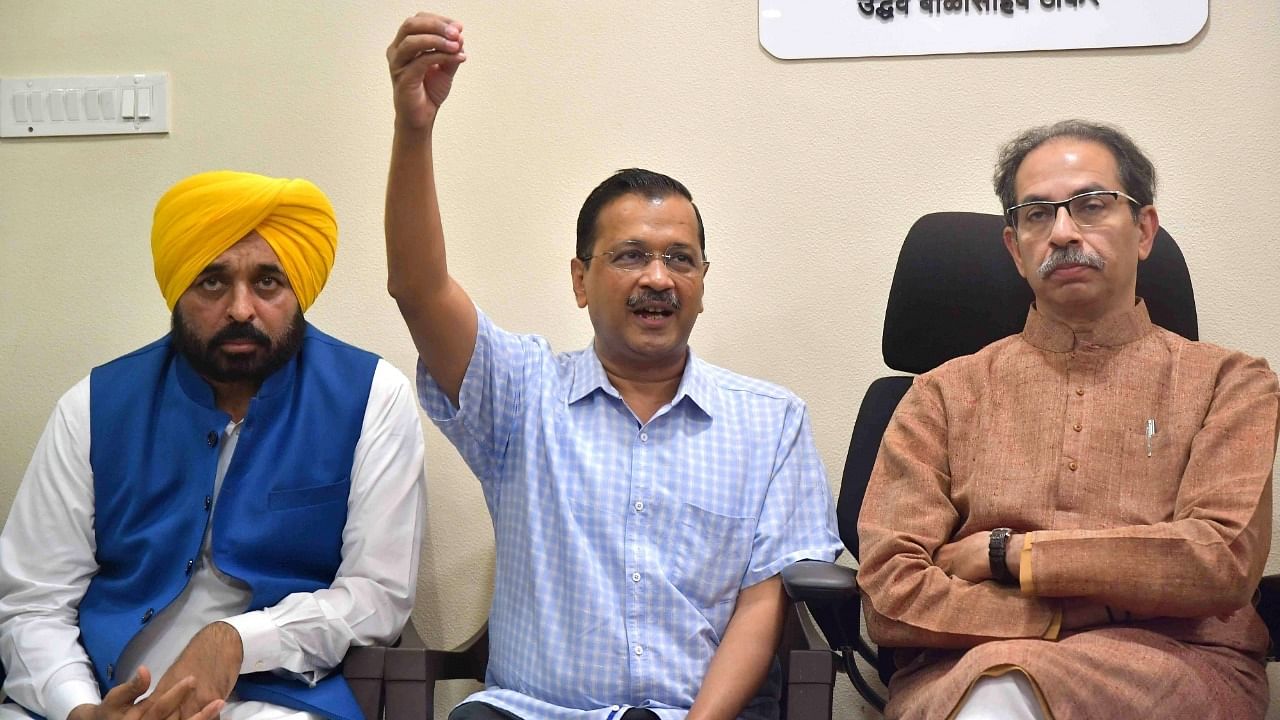
In politics, the enemy’s enemy is not necessarily one’s friend. Aam Aadmi Party convenor Arvind Kejriwal would have realized as much while travelling distances to drum up support against the centre’s ordinance seeking to negate the Supreme Court’s recent order handing over administrative control of services to the elected government of Delhi.
While satraps like Mamata Banerjee and Uddhav Thackeray have obliged the Delhi chief minister with unequivocal support, the neighbours next door has dithered to commit too soon.
The Congress’ grievances against Kejriwal have since been articulated by former union minister and Delhi strongman Ajay Maken. The litany includes a resolution piloted by the AAP in the Delhi assembly to strip former prime minister Rajiv Gandhi of Bharat Ratna.
Now that may be an emotive issue for most Congressmen, but not a strong enough reason in realpolitik to break ranks with the opposition parties in the election year. Maken’s statements, however, do allude to a deep mistrust and an inveterate bitterness between the AAP and the Congress.
Also Read | The duel for Delhi Durbar
The AAP’s genesis is embedded in the "India Against Corruption" movement against the UPA-II government led by Manmohan Singh. Though helmed by Anna Hazare, the BJP became the vicarious beneficiary of the campaign at the national level. Kejriwal’s rewards were confined to Delhi, where the AAP swept away Sheila Dikshit to relegate the Congress to the margins.
Bolstered by the Delhi victory, the AAP’s juggernaut rolled into other states – inflicting debilitating damages to an already beleaguered Congress. Punjab was the second state that the AAP has wrested away from the grand old party. The AAP’s determined foray in Gujarat split the non-BJP votes. It did the same in Uttarakhand, Goa and Haryana too.
The AAP’s emergence in India’s political tapestry can be better understood if one were to contextualize the BJP’s rise as a dominant pole in the national polity. Regional parties, like the Trinamool Congress or the Samajwadi Party, have positioned themselves as the prime challenger to the BJP in their respective states. The AAP, however, has tried to eke out a space in provinces where BJP and Congress are locked in a bi-polar contest.
Intermittent flirtation with right-wing populism notwithstanding, the AAP has by and large sought to project itself as a rival to the BJP, and an alternative to the Congress.
Since the Congress’s and the AAP’s catchment areas are mutually inclusive, one can only gain or lose at the expense of the other. It is precisely the reason why rapprochements between the two – like Congress president Mallikarjun Kharge calling up Kejriwal to express solidarity after the Delhi chief minister was summoned by the CBI for questioning – have been few and short-lived.
A comfortable victory in Himachal Pradesh and a resounding comeback in Karnataka this year have emboldened the Congress to assert its position as the principal opposition to the BJP ahead of the 2024 Lok Sabha polls.
Of late, Kejriwal too seems to have taken cognizance of the pecking order. After meeting the NCP chief Sharad Pawar in Mumbai, he said that he would personally call on Kharge to solicit support.
The Congress too may finally come around to extend support to the AAP – both inside and outside parliament. But, in the process, the grand old party also wants to underscore its leadership position within the opposition front.